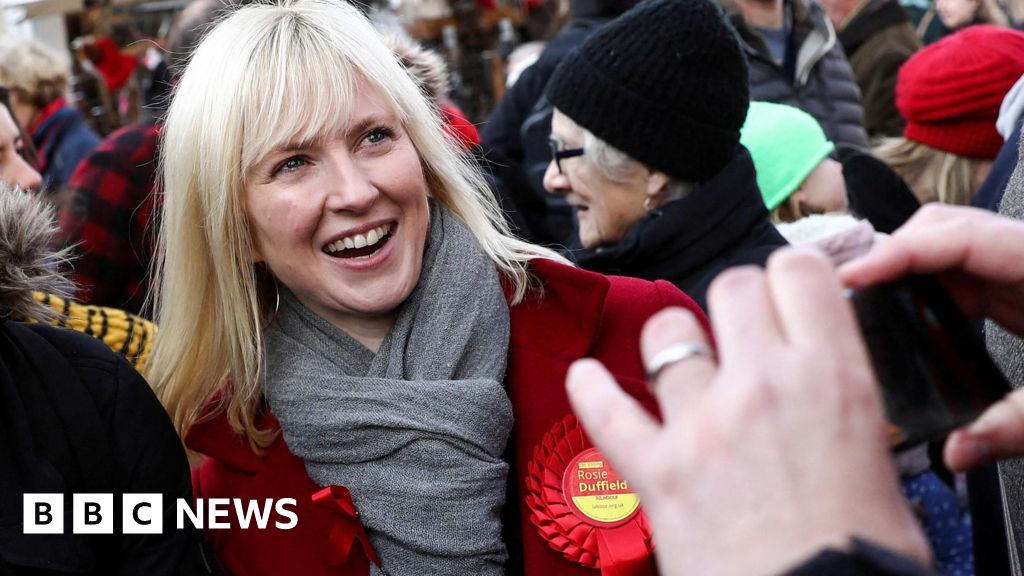ARTICLE AD BOX
Image source, Getty Images
Image caption,Prime Minister Boris Johnson has been urged to step up sanctions against Russia over its invasion of Ukraine
A law designed to harden and speed up sanctions against oligarchs and firms with links to Russian President Vladimir Putin is set to be rushed through Parliament.
The UK government says changes to its Economic Crime Bill will make more crippling sanctions possible.
But opposition and some Tory MPs argue the bill does not go far enough and have proposed more changes.
The government has faced pressure to step up sanctions on Russia.
The government has already imposed sanctions on Russian companies, banks and individuals with links to President Putin, after he ordered the invasion of Ukraine almost two weeks ago.
Days later Prime Minister Boris Johnson said it was time to "squeeze Russia", as he announced what he called "the largest and most severe package of economic sanctions" the country had ever seen.
There are still a number of Putin-linked Russians who have been sanctioned by the US or the European Union, but not by the UK.
To ramp up pressure on Mr Putin, MPs from all parties - including some Conservatives - have urged the government to target these people.
The government's amendments to the Economic Crime Bill are intended to address these demands and "crackdown on corrupt elites" with financial assets in the UK.
Recent research by campaign group Transparency International suggests £1.5bn worth of UK property has been bought by Russians accused of corruption or links to the Kremlin since 2016.
Property register
The bill, which has been in development for years under successive governments, is expected to pass all stages in the House of Commons on Monday.
It will then move to the House of Lords for consideration before its expected passage into law later this month.
The bill will create a new register that will require foreign owners of UK property to declare and verify their identities with Companies House. The register aims to stop criminals and oligarchs from hiding behind secret shell companies registered overseas.
Entities that refuse to declare their owners will face restrictions in selling property and those who break the rule could be imprisoned for up to five years.
Labour says it will support the legislation, but wants the proposed timeframe for property owners to register to be cut from six months to 28 days.
Labour leader Sir Keir Starmer told the BBC's Sunday Morning programme that the shortened timeframe would "make it really effective and put the maximum pressure on Russia".
"Six months is more than enough time to sell property," he said.
Watch Boris Johnson tell MPs that the UK will squeeze Russia from the global economy
Asked if he would support Labour's amendment, Conservative MP Kevin Hollinrake told the BBC's Westminster Hour programme: "It depends what the government does.
"If the government just left it at six months then I would back the 28 days. But I think the government will go much further than that.
"I've spoken to the ministers involved. I think they're very sympathetic to the position."
Another amendment, which would prevent anyone who the government is considering sanctioning from selling or moving assets out of the UK, has been tabled by Conservative MP David Davis.
Other changes
The legislation also strengthens Unexplained Wealth Orders (UWOs), which were powers brought into force in January 2018 to counter suspected criminal money invested in property.
However, UWOs have been used just four times since 2018 and only one has resulted in property being surrendered so far.
The orders will be reformed to give crime investigators more time to review case material and to protect them from substantial legal costs if they pursue reasonable cases which are ultimately unsuccessful.
In addition, new measures will make it simpler for UK authorities to sanction individuals in alignment with allies such as the US and the EU.
The government says the amendments will remove an "appropriateness" test, which will allow it to "act more quickly and make changes to further facilitate the designations of groups of individuals".

 3 years ago
85
3 years ago
85








 English (US) ·
English (US) ·